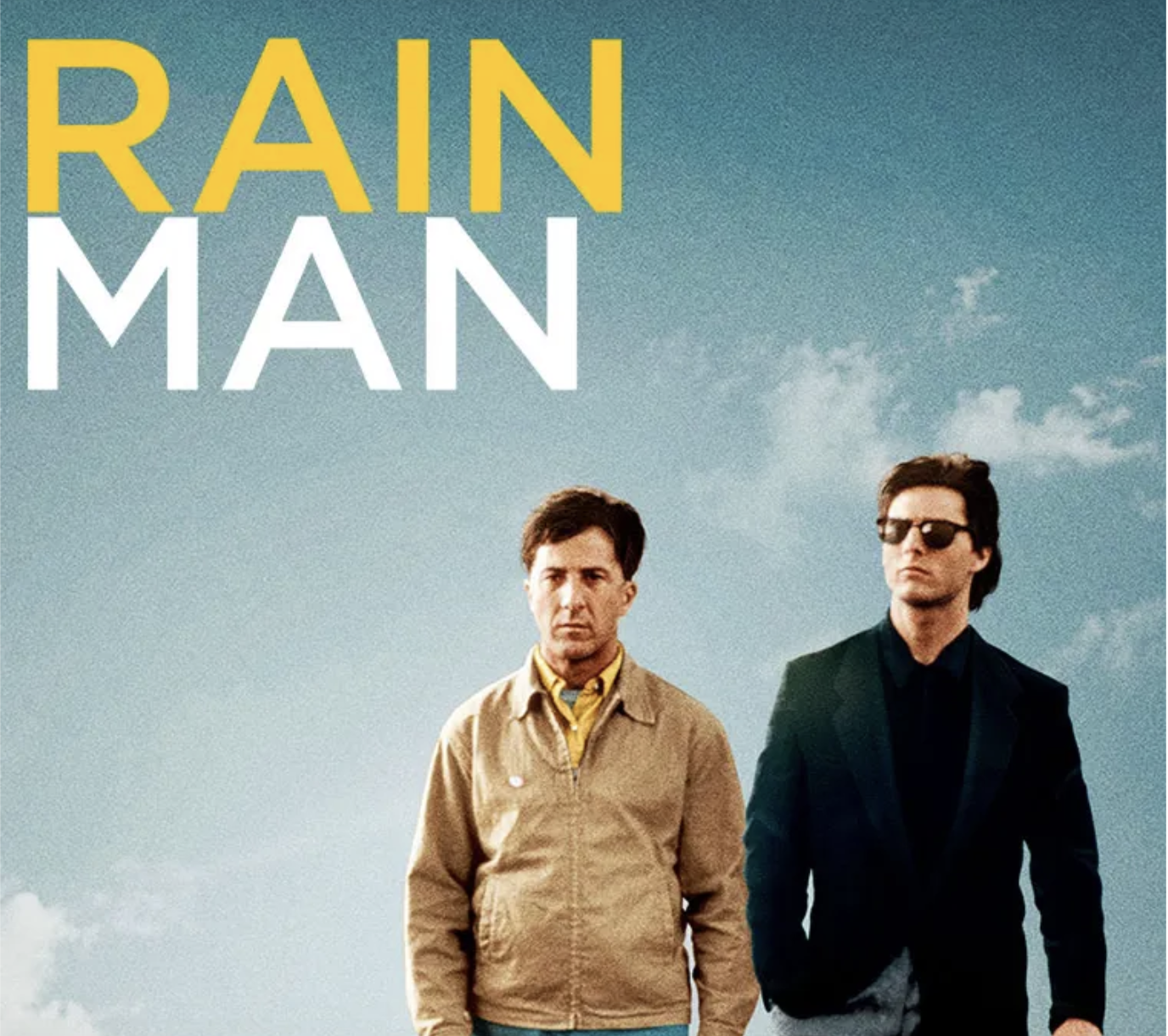Why Representation Matters
Rain Man: introducing the world to autism.
I'm reading The Secret Lives of Booksellers and Librarians: True Stories of the Magic of Reading by James Patterson and Matt Eversmann. It's a compilation of essays by (or interviews of?) librarians and bookstore owners and workers about the importance of books in their lives. There are several recurring themes throughout the book. One is how meaningful it is for readers, especially young readers, to see themselves represented in books, whether it's a minority (black or Hispanic) adult in jail awaiting sentencing or a teenager struggling with sexuality or any other person feeling lost or alone.
In fact I feel like I've been seeing this message ringing out a lot lately, from a Smithsonian exhibit about women in history to representation in movies and at awards shows and everything in between. Penn Holderness, who recently published a children's book about ADHD with his wife Kim, recently commented about how a child came up to him at a book event and asked if he'd ever done something the kid always does and gets in trouble for. The child seemed to light up when Penn could relate. This is the primary reason representation matters and why we need to see ourselves in stories and history. These are our social needs at work: we need to feel seen and heard and understood. We need to feel like we belong in our communities. Knowing that someone else has felt the same emotions (frustration, sadness, anger, pride, joy) because of similar personality traits or experiences is such a balm for our mental health.
However, I've recently come to understand that there are a couple of other important reasons representation matters. The first is that seeing or hearing stories of someone like you growing and achieving success, maybe in surprising ways, is inspiring. It opens you up to possibilities you may not have considered before. These stories can give you options and hope (autonomy).
The other is that having diverse stories helps everyone else understand and accept a person's differences and unique strengths. I recently re-watched the 1988 film Rain Man starring Dustin Hoffman and Tom Cruise. Mr. Transportation asked, "Does it hold up nearly 40 years later?" I replied, "I think so, though the autism community probably wouldn't agree." Certainly, we have learned a lot about autism since the film's release, and though Hoffman's character Raymond is described as "high functioning," today many who are diagnosed as being on the autism spectrum live and work independently and might feel comparisons to Raymond to be offensive. However, it's undeniable that the success of Rain Man put the word "autism" in the general public's vocabulary, increasing visibility of the condition and inspiring families to seek diagnoses for family members. It's likely much of what we know today stemmed from the spotlight the movie put on the condition.
The CDC estimates that 1 in 45 adults are somewhere on the autism spectrum, which means that all of us know someone (and probably several someones) who is autistic. Hearing the stories of people on the spectrum, starting with Rain Man up through The Good Doctor television series and beyond, gives everyone (including all neurotypical audiences) the opportunity to witness the humanity and the value of the people represented by the characters. This results in greater respect in general for the community of people on the autism spectrum (esteem).
Another major theme of The Secret Lives of Booksellers and Librarians is censorship and book banning. Often what is banned are the stories of marginal groups of people who so dearly depend on their stories being told. It's for the ways these stories fill the Six Needs mentioned above that I find book banning to be so heartbreaking. The thing is, I think I understand why book banning seems to be on the rise. The pace of change we are currently facing is terrifying (safety), and people are trying to find something to hold onto, possible actions that will slow the pace of change. I have a lot of thoughts on this, and hopefully I'll get a chance to delve into this in greater detail in a future post.
Have you had your life changed by hearing the story of someone you could relate to? If so, I'd love to hear about it!
Notes:
A major inspiration for this post was an episode of Nova: Picture a Scientist about discrimination against women in science. That episode led me to a great article about implicit bias against women scientists.
